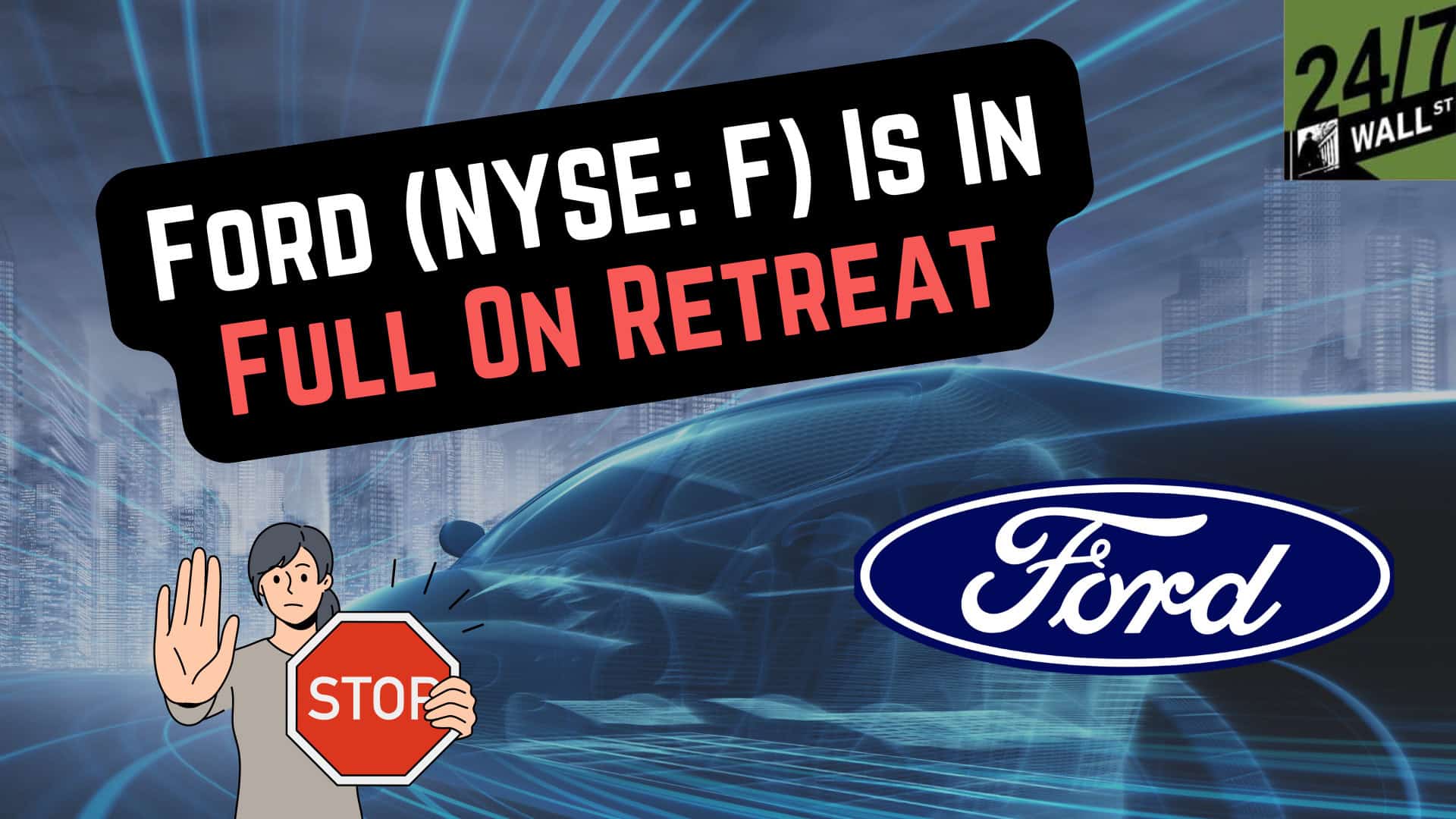
Key Points:
- Ford halts its electric SUV project and reduces EV investments.
- Struggles with EV versions of the F-150 and Mustang.
- Indicates broader challenges in Ford’s EV strategy.
- Though EV got some struggles and challenges, investors have already identified ‘The Next Nvidia’. See what all the excitement is about by clicking here now.
Douglas and Lee discuss Ford Motor Company’s (NYSE: F) recent announcement of a $1.9 billion write-down and its decision to scale back on its electric vehicle (EV) investments, specifically discontinuing work on a three-row EV SUV. This move signals a significant retreat from Ford’s earlier commitment to investing $30 billion in EVs. They express surprise and concern over Ford’s shift, especially given the popularity of three-row SUVs and Ford’s use of iconic brands like the F-150 and Mustang to spearhead its EV efforts, which have not succeeded as planned. They speculate whether Ford’s decision reflects a broader issue with the EV market or specific challenges within the company, such as its ongoing quality problems, and consider this a major setback for Ford’s long-term strategy.
Transcript:
The Ford Motor Company cannot stop shooting itself in the foot.
I hope.
You’d think that the gun would run out of bullets, but Ford announced a $1.9 billion breakdown this week.
Uh-oh.
They said they’re discontinuing work on their EV.
SUV, yes.
Three-row SUV.
Uh-oh.
Three-row SUVs have become very, very popular.
They are popular, sure.
Eight people in them without.
It’s like a station wagon, but it’s an SUV.
Right.
But it’s an SUV. I think that they believe that because those are so popular, having an EV version of it would be great.
They punted on that. They said EV investments are going to be a smaller amount of their annual investments in new products.
This is a full-on EV retreat by Ford, which at one point they said would put $30 billion into EVs.
Uh-oh.
Yeah, it was surprising, and there’s a lot of charges they’re taking to retool that plant, which I think is in Tennessee.
And it’s like, how often are they going to continue to do this?
They either have to take a stand and make their stand, or they should get out of the EV business or buy some other company and let them deal with it.
Well, there are two fascinating things about Ford.
The first one is, of all the US car companies and European car companies, as a matter of fact, who said that they would be the number one EV company, at least in the United States.
They have been talking about that for ages and not doing it.
The other one is that they’ve taken their two marquee brands, the F-150 pickup and the Mustang.
Right.
One’s been the top selling vehicle in the United States for almost five decades.
The other one has been an iconic sports car brand.
This is the 60s, sure.
60 years, 60 years this year.
They basically turned those into electric vehicles. They used those brands.
They did not work.
You know, when you look at Ford, you’ve got to ask yourself the question,
Did they think that the EV business was really, really bad and they did this, or did they discover that they were really, really bad at it and decided that they needed to withdraw from the market until they got it together?
As you know, one of Ford’s problems is that it has a real, real quality problem.
You see it when you look at their warranty write downs every quarter.
So I don’t know what the incentive was among the board management to make a big, big shift like this.
But to me, it’s bad news because it’s a setback of something where they said they had to win.
Get Ready To Retire (Sponsored)
Start by taking a quick retirement quiz from SmartAsset that will match you with up to 3 financial advisors that serve your area and beyond in 5 minutes, or less.
Each advisor has been vetted by SmartAsset and is held to a fiduciary standard to act in your best interests.
Here’s how it works:
1. Answer SmartAsset advisor match quiz
2. Review your pre-screened matches at your leisure. Check out the advisors’ profiles.
3. Speak with advisors at no cost to you. Have an introductory call on the phone or introduction in person and choose whom to work with in the future
Thank you for reading! Have some feedback for us?
Contact the 24/7 Wall St. editorial team.





